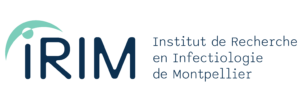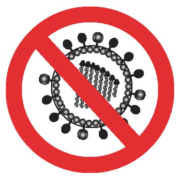Entry forbidden! A new antiviral ISG identified by C. Goujon’s and M. Malim’s teams
Type 1 interferon induces a potent antiviral state through the regulation of hundreds of interferon-stimulated genes (ISGs).
Following interferon treatment, influenza A virus infection is largely inhibited, and the ATIP-Avenir team of Caroline Goujon is interested in understanding the underlying molecular mechanisms. In collaboration with Michael Malim’s lab at King’s College London, they have identified the short isoform of NCOA7 as a new ISG which plays an important role in influenza A virus restriction. CRISPR/Cas9 knock-out of NCOA7 significantly rescues influenza A virus infection in the presence of interferon. Conversely, the ectopic expression of NCOA7 potently inhibits influenza A virus infection. NCOA7 does inhibit the fusion between the viral envelope and the endosomal membrane and therefore the entry of the viral material into the cytoplasm of the target cells. NCOA7 does modulate the pH of the endolysosomal pathway via an interaction with the vacuolar ATPase and, in addition to its antiviral effect, might play a role in regulating antigenic presentation and the adaptive immunity. This work has recently been published in Nature Microbiology.

